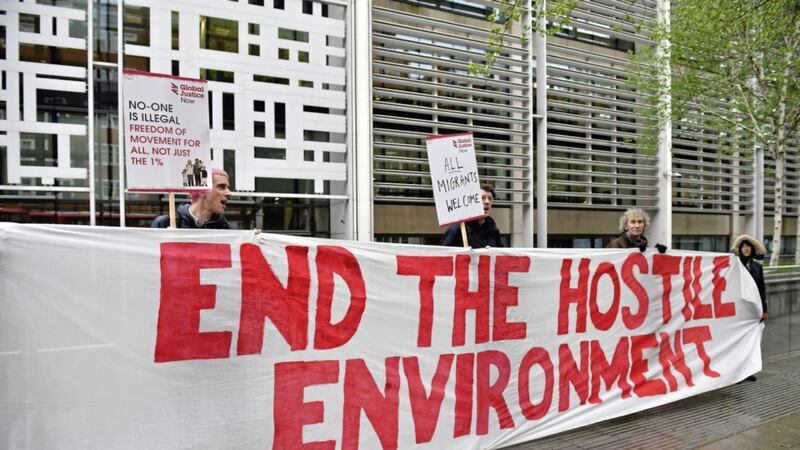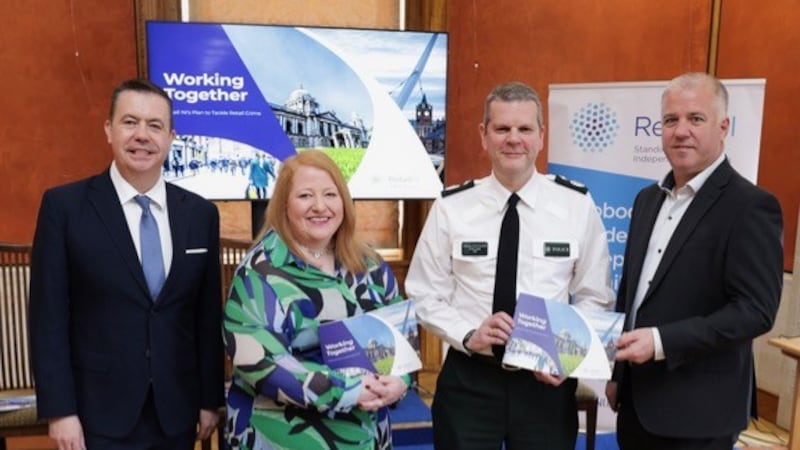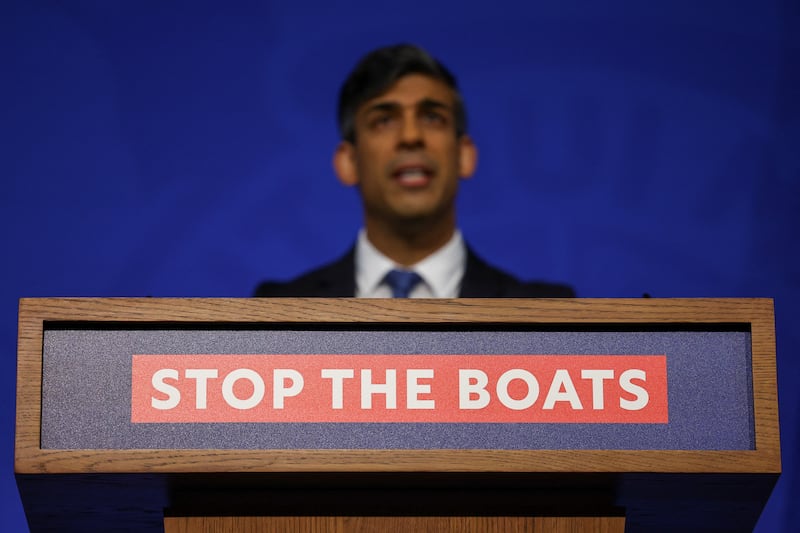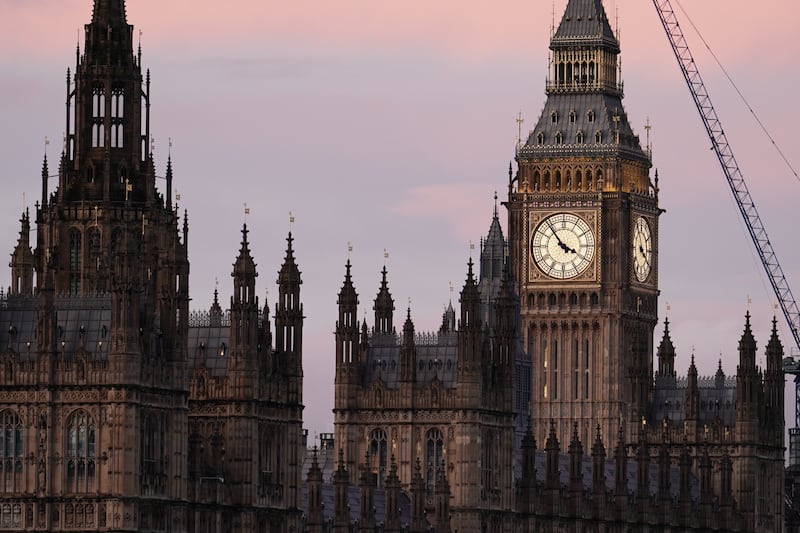VULNERABLE people are being targeted in Northern Ireland by a British Home Office policy exposed through the Windrush scandal, human rights lawyers have warned.
In a snapshot of the alleged outworkings of the 'hostile environment' system, Belfast immigration tribunals this week refused to give 'leave to remain' to a trafficked child, a victim of torture and an LBGT asylum seeker.
The concerns come ahead of Northern Ireland's first Immigration Conference taking place tomorrow, which brings together lawyers, human rights academics and migrants and is organised by the newly-formed Law Society's Immigration Practitioners Group.
The Windrush controversy erupted earlier this year after it emerged children of Caribbean migrants had been wrongly threatened with deportation.
Some campaigners have blamed a so-called 'hostile environment' policy, which involved data-sharing aimed at curb illegal immigration, for the issues that have arisen.
Immigration lawyer Una Boyd, who is appearing at the conference, accused the British government of an escalation of "rolling back on people's rights".
Professor Colin Harvey from Queen's University of Belfast, who is also speaking, told The Irish News: "UK immigration law is already very, very worrying and has been for a very long time.
"The direction of travel for the last two decades has all been in one direction – deflection and deterrent."
Immigration experts point to figures showing 75 per cent of final appeals brought by the Home Office against rulings allowing asylum seekers and other migrants to stay in the UK are dismissed.
Ms Boyd said this dragging the process out is part of a policy of attrition to discourage applicants.
"In each decision, each flawed appeal, you can see there's little push backs on people's rights every day.
"This week alone I have a trafficked child who has been refused leave to remain, a torture victim who has been refused asylum even though they produced a medical report, an LBGT applicant who had to defend their sexuality in court."
She has been approached by a charity about destitute asylum seekers trapped in the UK but not allowed to work.
Many long-established families are also affected.
"It can be anything from a spouse applying for a visa or human rights applications for people who have been without status for 20 years."
Families have to find £1,033 for a spouse from outside the UK to be allowed 'leave to remain' and £500 more (soon to be £1,000) for immigration health charge.
This must be renewed every two-and-a-half years, with an application for 'indefinite leave to remain' in the UK only possible after five years at a cost of a further £2,389.
"If somebody hasn't kept their status current, they often don't have the right to work or hold a bank account and then they are prevented from trying to regularise their status properly due to (lack of money)."
Both Ms Boyd and Prof Harvey said Brexit is likely to see the numbers of people affected spiral.
"Everyone is talking about, 'Will the government roll back people's rights after Brexit?' It is already happening and falling under the radar, unless it gets attention like the Windrush scandal'," the solicitor said.
Prof Harvey added: "It has been a long-running policy with problems from a human rights perspective and Brexit will make it a lot worse.
"The UK is not leaving the EU to have a more liberal asylum policy."
A Home Office spokesperson said:
“We are committed to delivering an immigration system and asylum process that protects vulnerable individuals, is sensitive to all forms of persecution but which tackles illegal immigration.
“This government has a proud record of providing protection for those who need it and support for trafficking victims brought to the UK by organised crime gangs.”







